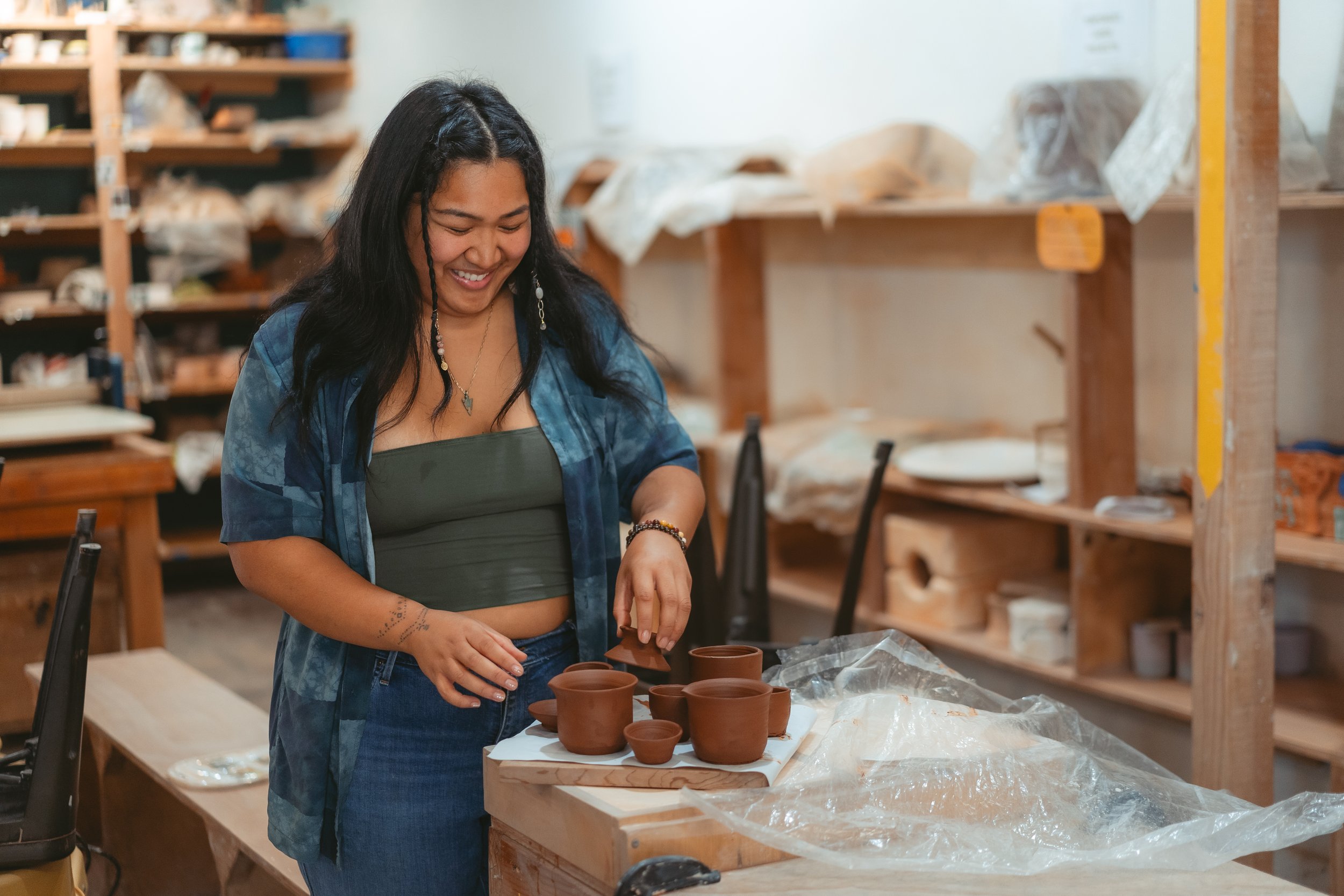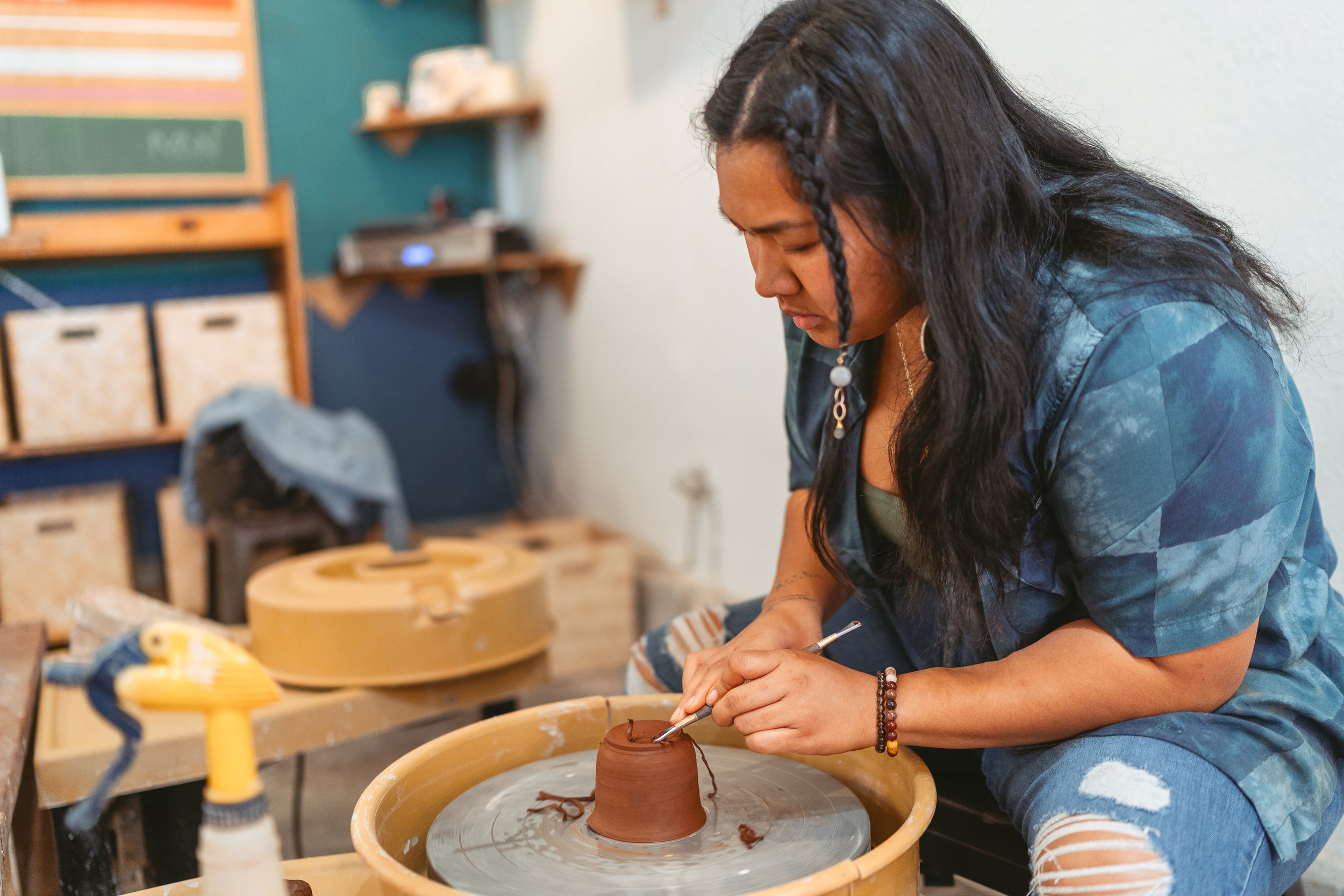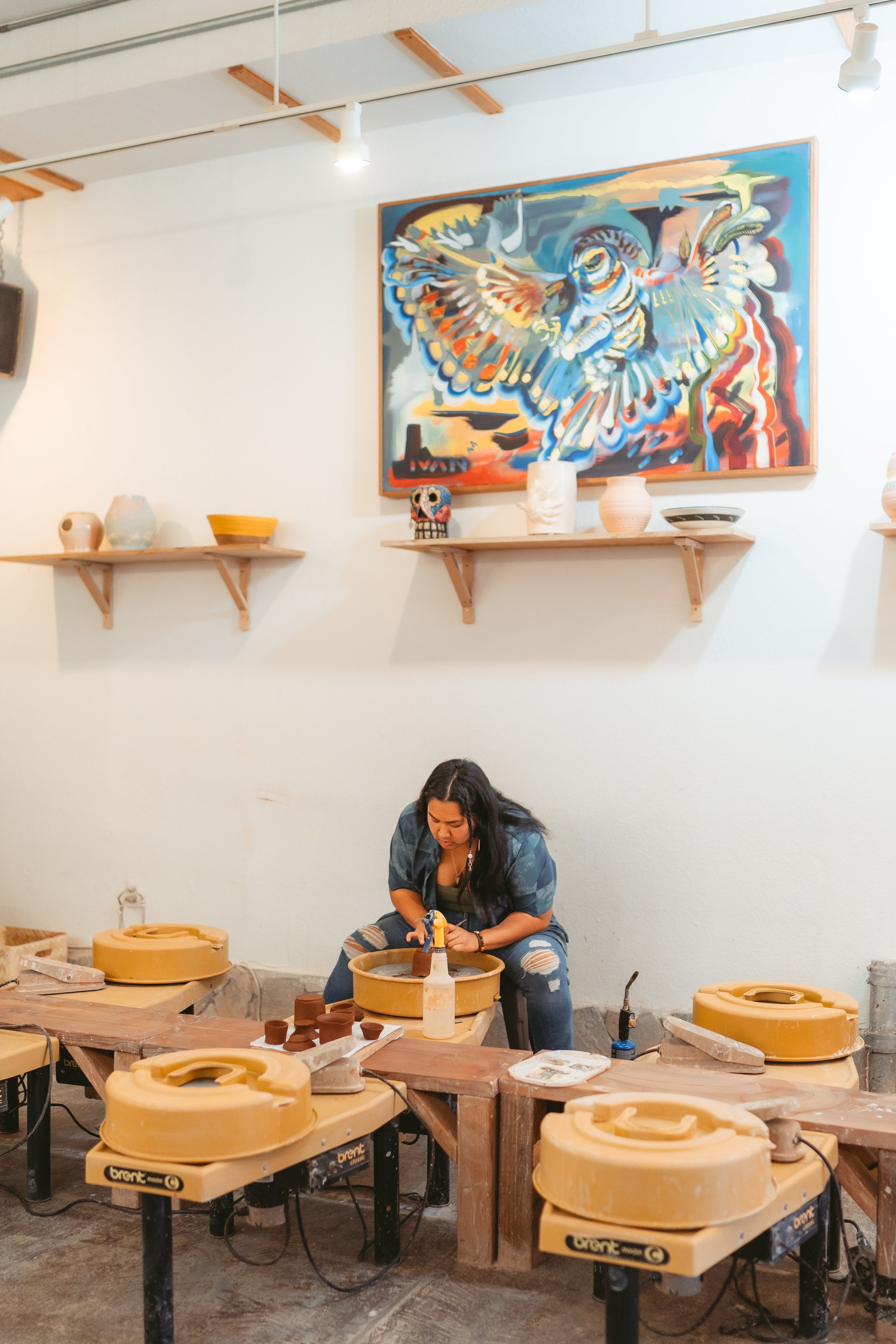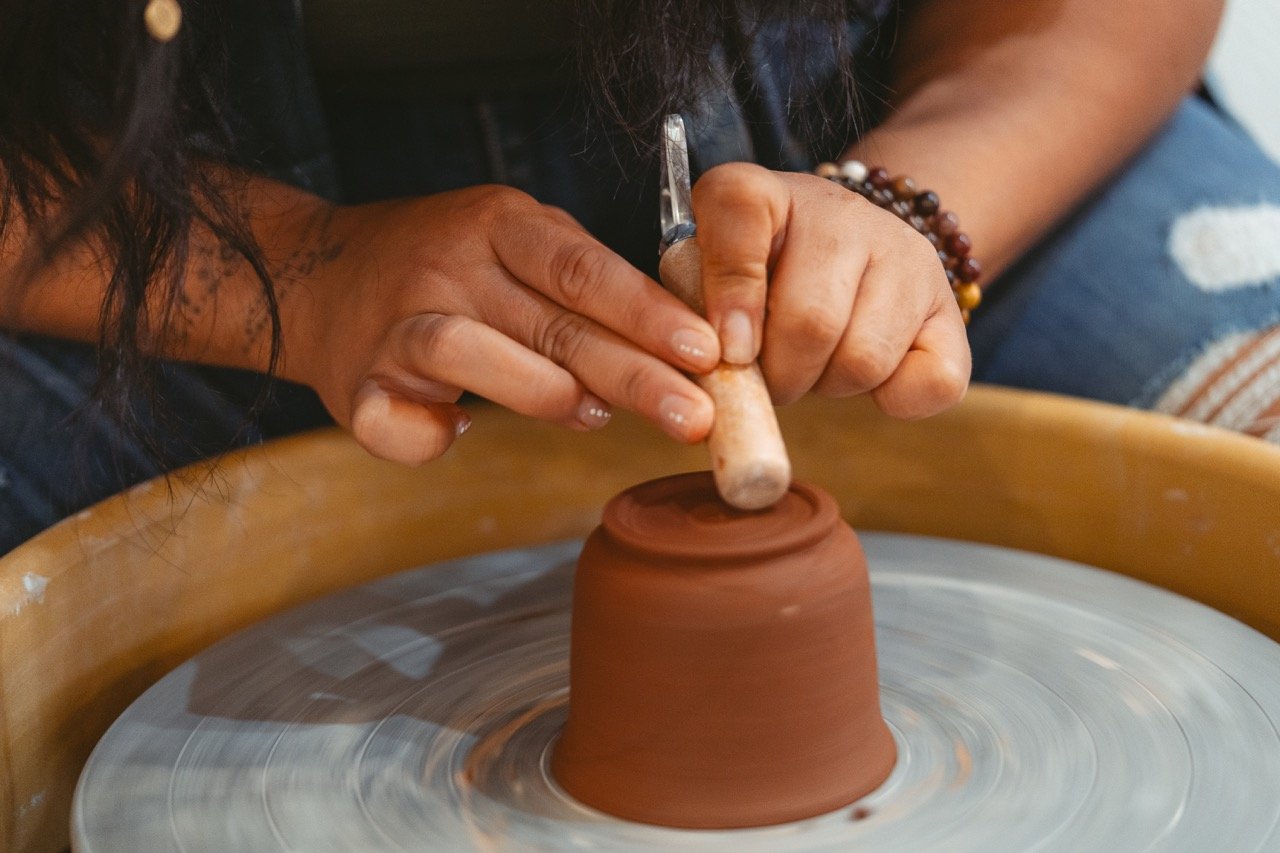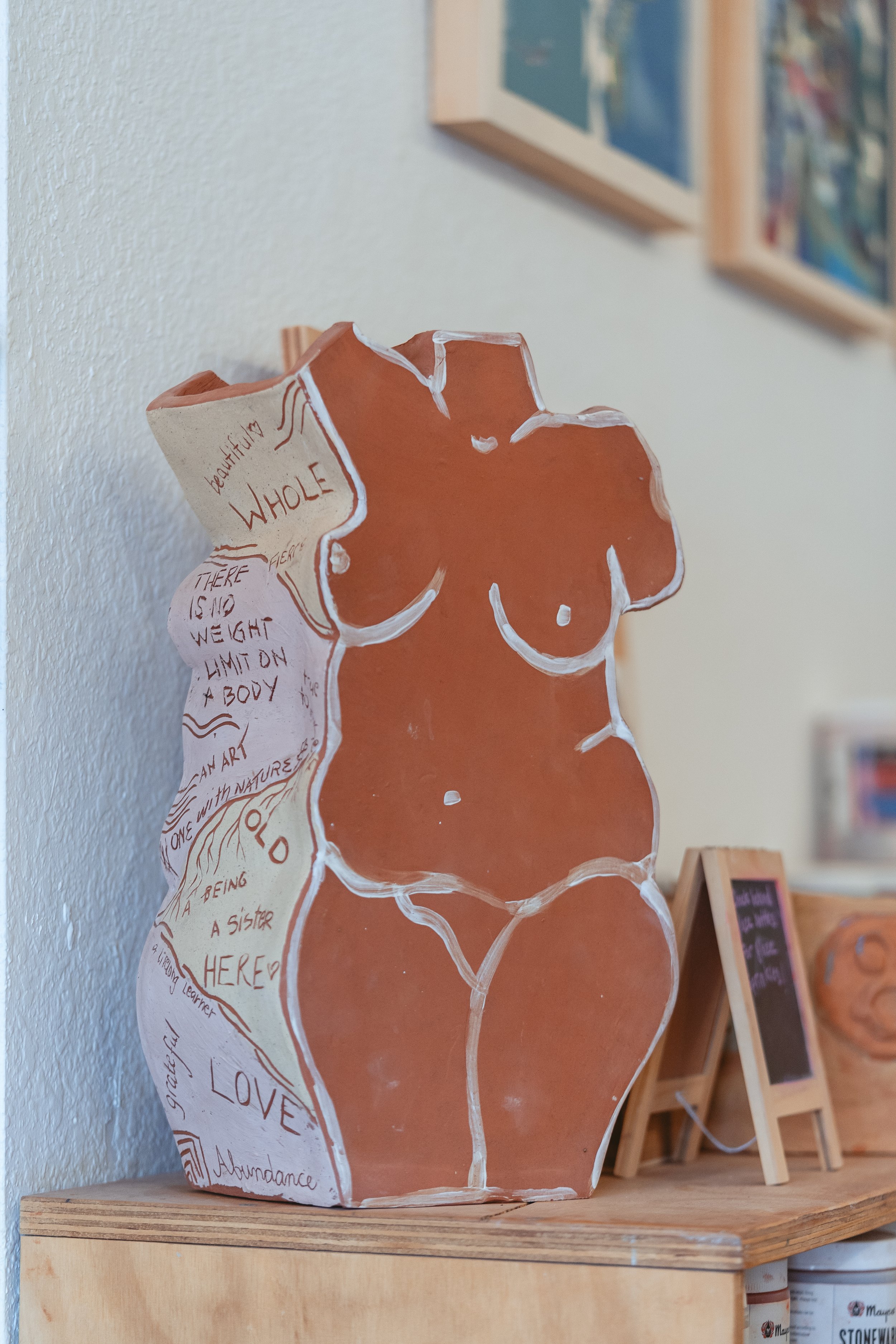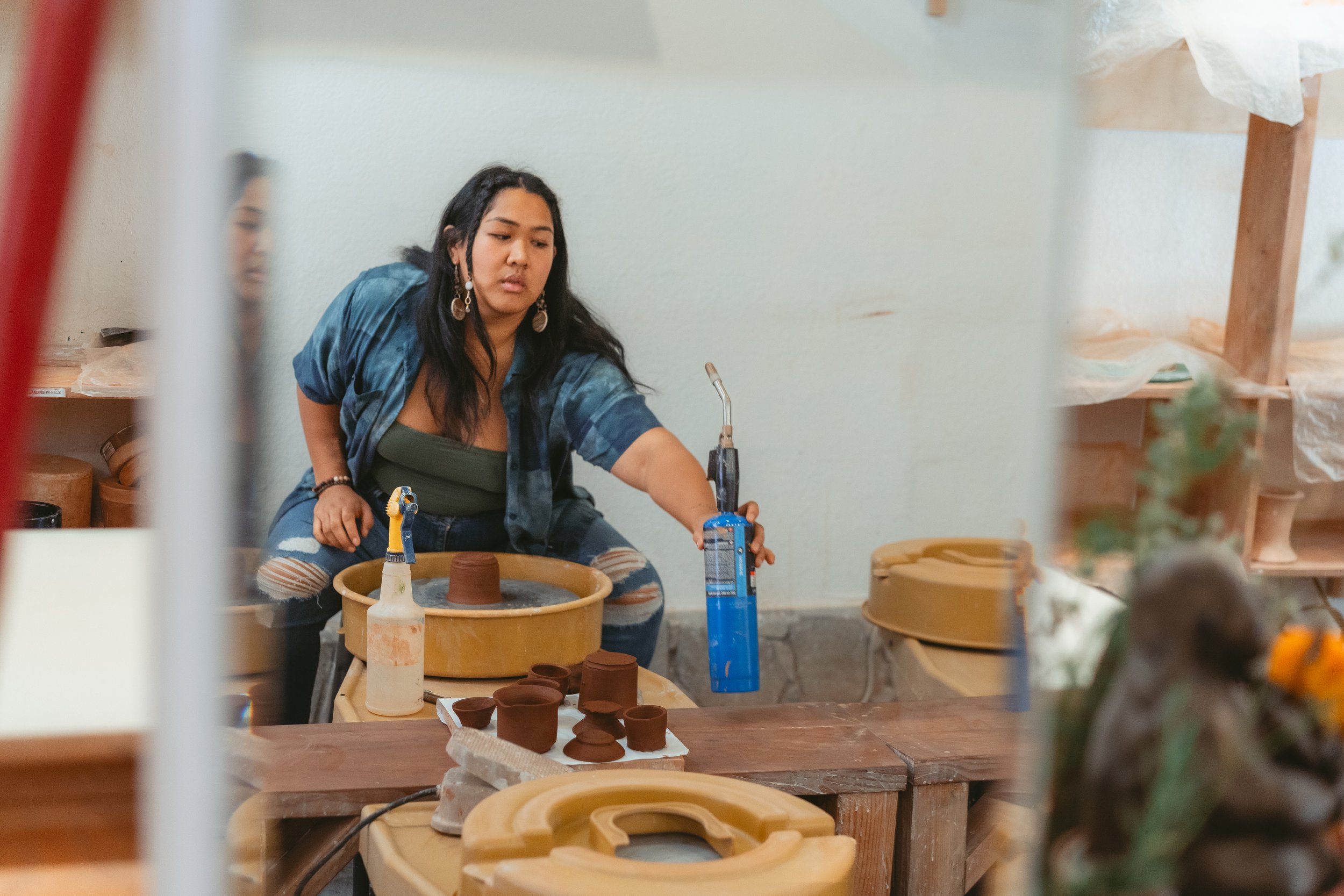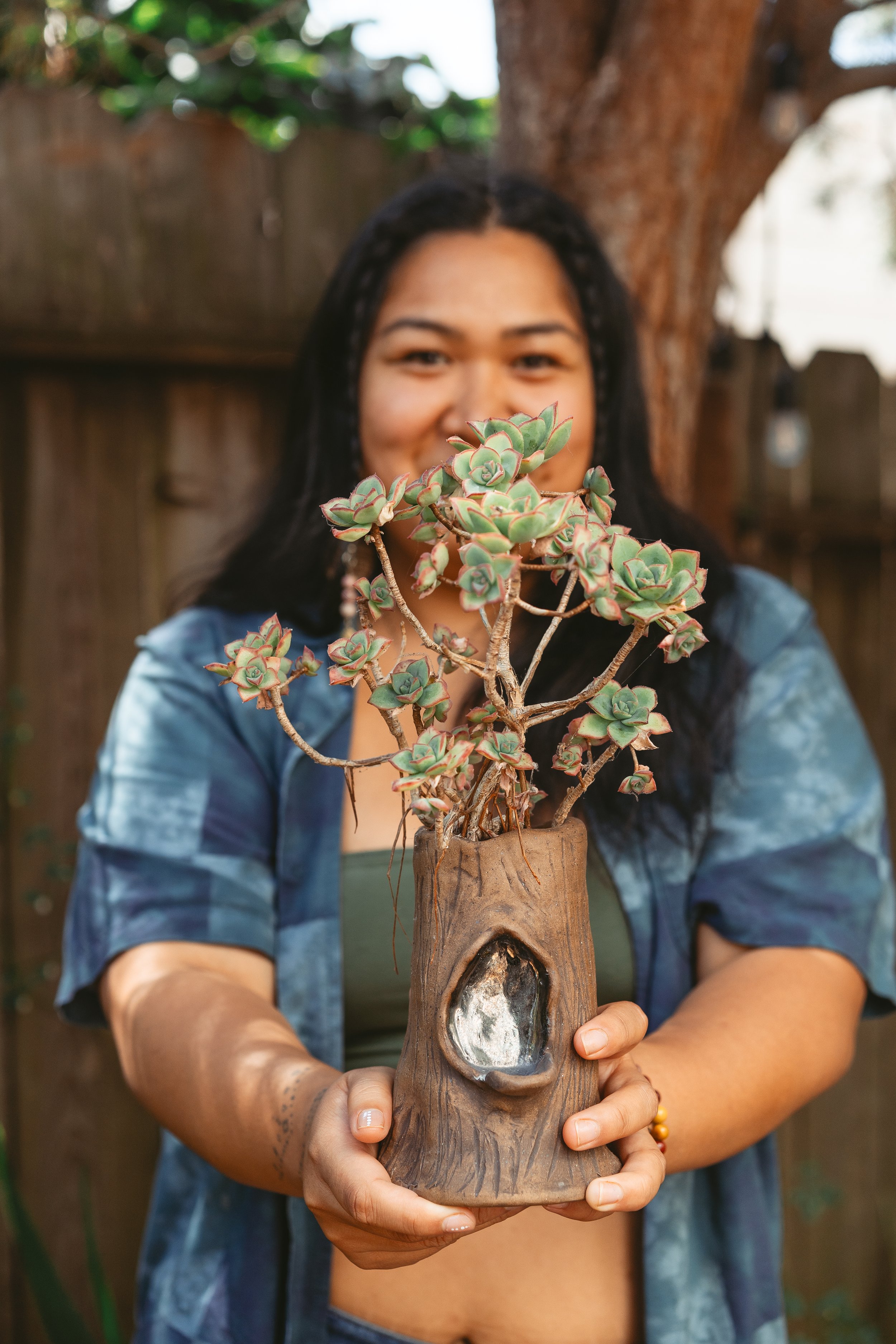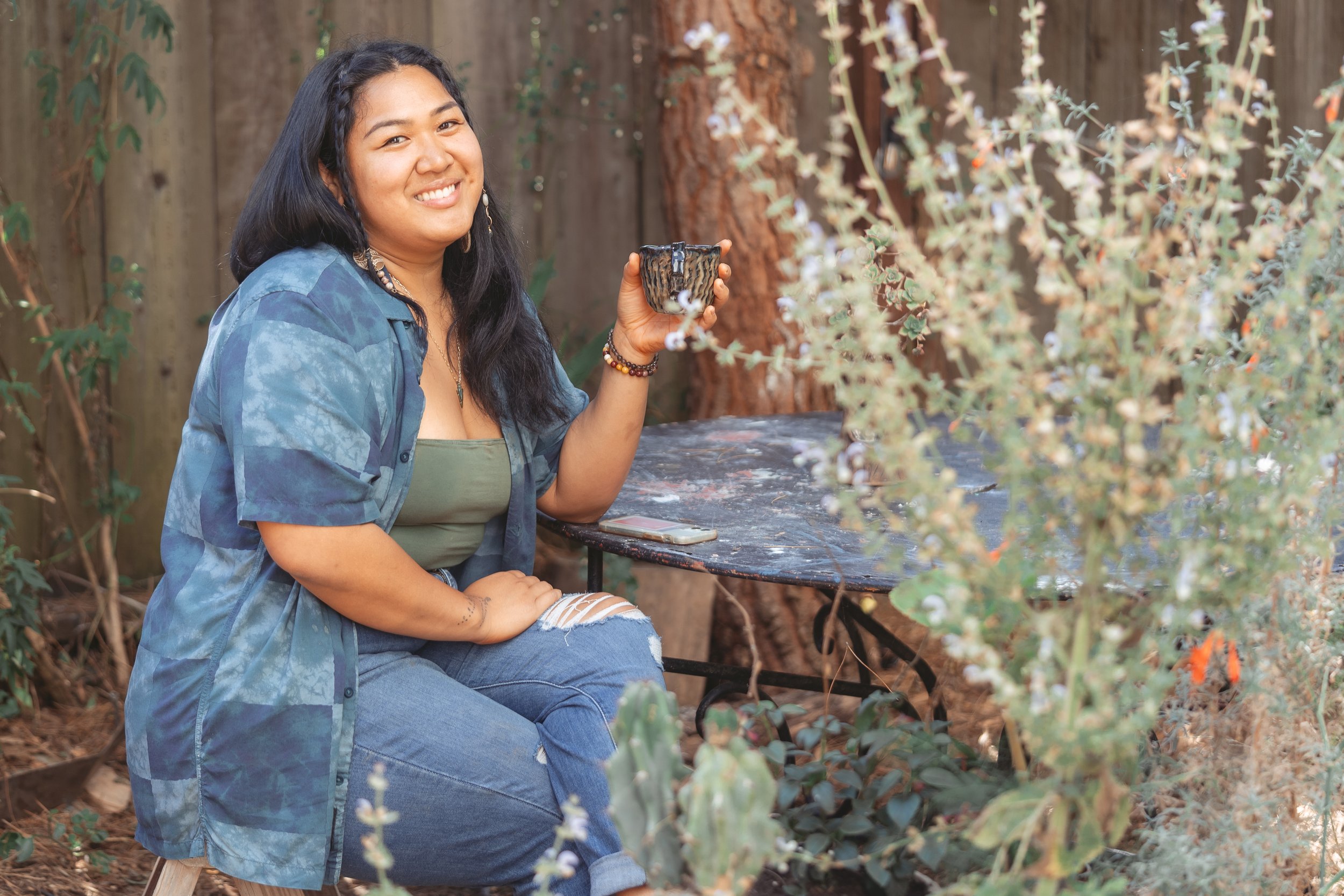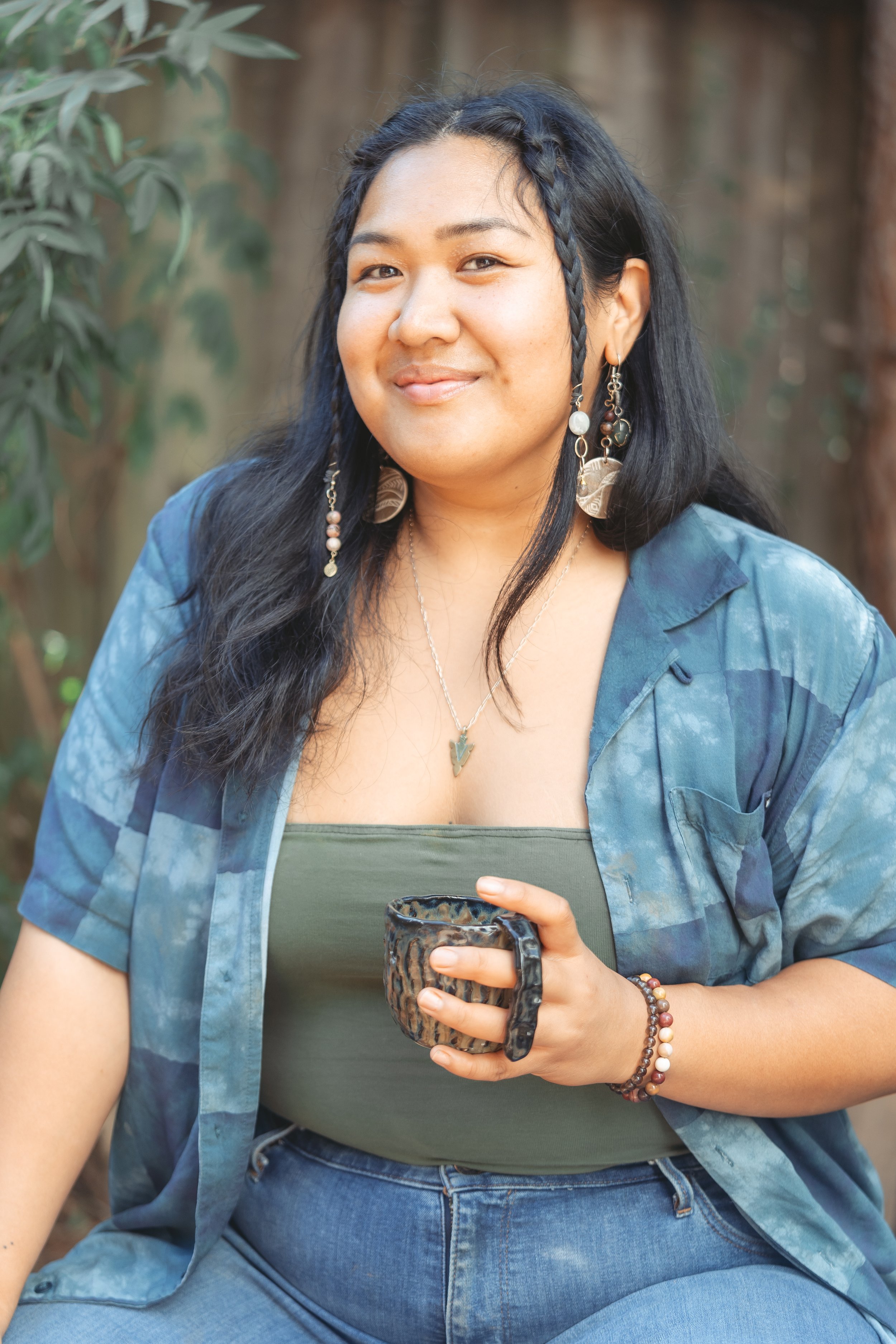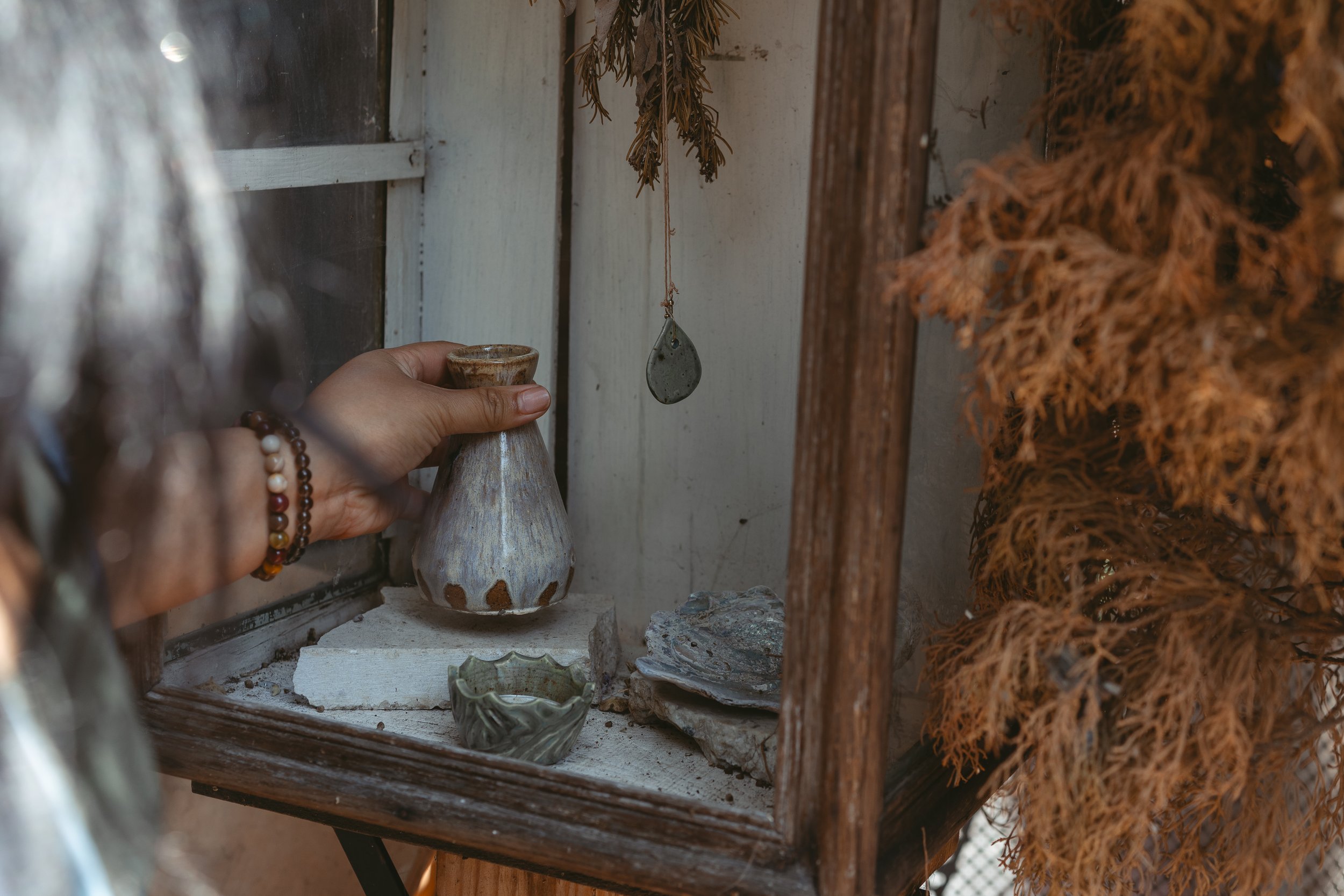Reconnecting with the Earth and ancestral roots: Lyss Gruezo on the healing power of traditional palayok, art, and cooking
Lyss Gruezo, also known as Mayari and the artist behind Mayari Sol Creations, at Artillery AG in San Francisco’s Mission District on September 22, 2023. Photo: Jen Rocha Photography
The palayok, forged from clay harvested among riverbeds and mountainsides across the Philippine archipelago and molded into earthenware pottery, represents a deep history of artistry, innovation, and survival. Traditionally used for food preparation and storage, the clay vessel can be traced back to the Neolithic Age, along with other earthenware, including ornaments, globular pots, and burial jars.
Continuing this Philippine pottery tradition is Batangeña and Bicolana artist Lyss Gruezo. Also known as Mayari, she is the artist behind Mayari Sol Creations. Based in the San Francisco Bay Area, Mayari provides palayok workshops that draw inspiration from her family’s home in a small province near the volcanoes of Bicol. She holds space to facilitate meditation and breathwork in each workshop for participants to set intentions and reflect on their connection with nature.
“Having a relationship with the Earth, as our ancestors did for survival, is important to creating. Working with the clay has really allowed me to tap back into that deeper understanding and knowledge of what the Earth holds,” Mayari said.
Mayari’s creative journey with ceramics began in 2011 when she was 16 years old as a high school elective and instantly fell in love with the craft. One of her earliest and most memorable pieces was a ceramic coconut she made in high school, reminiscent of her family’s lineage of coconut farmers. From that moment forward, Mayari felt it was her ancestral calling to work with clay.
After earning a degree as a materials engineer, Mayari stepped away from ceramics to step into the corporate world. During the COVID-19 pandemic, she gradually found her way back to art and joined a residency program that provided BIPOC ceramicists free studio space and access to a kiln. From then, she began working and teaching at a community clay studio in the Mission District called Artillery AG.
“Through the clay, I was able to reconnect with myself and who I am,” said Mayari. Her work is comprised of daily ritual vessels, such as tea sets, altar vessels, and functional body sculptures inspired by the native ecology, textiles, and traditional tattoo symbolism.
Working with clay became a healing process for Mayari that taught the value of reconnecting with one’s inner self and releasing any judgments of the body. Each piece Mayari makes is energetically fueled, amplifying the emotions she wishes to express. Her key to art? To follow what feels natural and good to the body.
“To sit and sculpt something that might not meet the perfect beauty standard. But in your hands, as you’re making it, it feels perfect because you’ve made it and set it up in the way you wanted to,” Mayari said. “To be able to do that around other people who are having that same experience is really powerful.”
Artist Lyss Gruezo works with clay at Artillery AG in San Francisco on September 22, 2023. Photo: Jen Rocha Photography
Mayari’s passion and creativity extend beyond art. For her, food is not simply a means of nourishment but a form of love and self-care, building community, and sharing traditions. From working with small clay sculptures to cooking with palayok, Mayari learned how to ground herself with the Earth and transform simple ingredients into sustaining dishes using knowledge of herbalism and cooking passed down from elders for generations.
“When I go in and make a nourishing meal for myself, the fact that I’m making it with so much of my energy and my love is the way that I know how to take care of myself and connect with other people and my ancestors,” Mayari said.
Her love for ancestral cooking methods grew after participating in a community circle facilitated by Kai Delgado Pfeifer called Filipinx Food as Medicine, which comprised communal cooking rituals, elemental meditations, and storytelling. Gaining experience in grating coconuts and extracting coconut oil and milk gave Mayari a greater appreciation for the traditional practice of harvesting fruit she had grown up watching her father do.
“The act of preparing food and eating it together is so regenerative to the spirit because you’re nourishing yourself and your loved ones,” Mayari said.
Recognizing the significance of cultivating a symbiotic relationship with the Earth, Mayari sees that reconnecting with the natural world and honoring one’s ancestry can help individuals imagine, create, and, above all, find joy in their human existence.
Photo: Jen Rocha Photography

